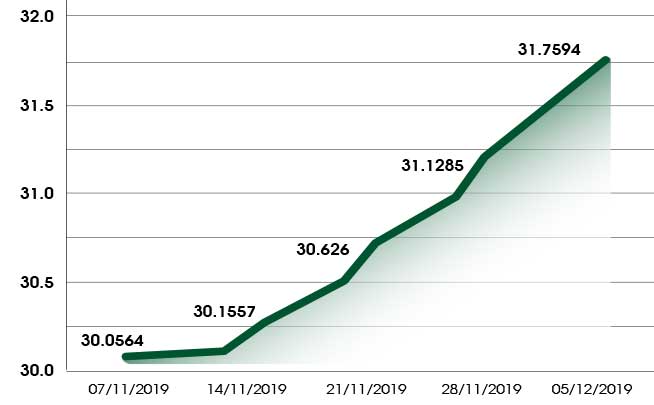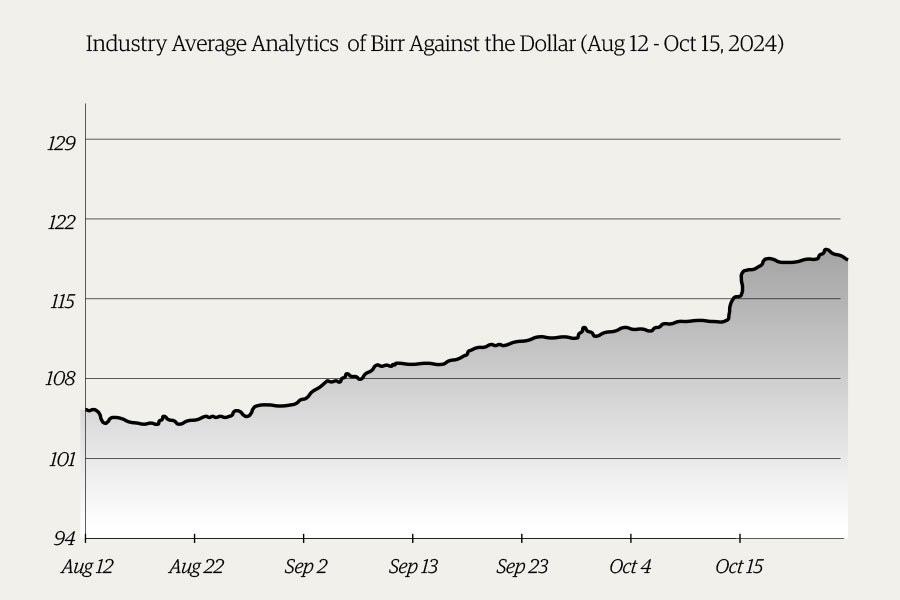
Radar | Mar 27,2021
Jun 29 , 2024.
In a spirited bid for autonomy, the National Bank of Ethiopia (NBE), under its youngest Governor yet, Mamo Mihretu, aspires to redefine its relationship with the government, the public, international partners, and the industry it regulates. The liberal notion of an autonomous central bank departs from its historically dependent role on the executive branch, signalling a potential era of increased independence and accountability. If only that is not too idealistic of a dream.
Two weeks ago, a bill aimed at overhauling the central bank’s operations was presented to Parliament. The draft proclamation appears to want to shift the NBE’s lending priorities towards price stability targets rather than the government’s fiscal needs. It also strips the Finance Ministry of its privilege to issue import permits through the Franco Valuta arrangement. The bill outlines new pathways for international cooperation and mandates stringent compliance measures to eliminate potential conflicts of interest within its staff. These ambitious reforms require substantial political commitment from Prime Minister Abiy Ahmed's (PhD) administration and a series of fortunate shifts across multiple fronts.
Ethiopia’s Constitution does not explicitly state that the Central Bank’s Governor reports directly to the Prime Minister, nor does the Governor address Parliament. However, in practice, the Central Bank operates under the oversight of the executive branch, including the Prime Minister's Office. The constitution's authors designed this arrangement to ensure the central bank's monetary policies comply with the government's broader economic strategies. It primarily outlines the NBE's responsibilities and powers in managing the country's monetary policy, issuing currency, and supervising the financial sector.
Historically, the details have been more intricate, often dictated by the ideological leanings of the ruling political order.
Under the Revolutionary Democrats, the National Bank functioned more as a branch of the administration than an independent central bank. During Teklewold Atnafu’s tenure, the longest-serving governor in the institution’s history, the NBE’s monetary policy objectives were closely aligned with the government's fiscal ambitions. When the Finance Minister required funds for projects, the Governor complied without question, contrary to the principles of autonomous central banking, which prioritise price stability, controlling inflation, and stimulating economic growth to generate sufficient jobs and keep unemployment in check.
Governor Mamo, who assumed office less than a year ago, appears to be changing this dynamic. He reactivated the monetary, financial stability, and macroeconomic committees at the Central Bank, which had been dormant for nearly two decades. His insistence that members of these committees would have no stakes in the institutions they oversee or in any agency involved with the committees to eliminate conflicts of interest and restore public trust in the NBE. He also pushes for further demonstrations of the Bank's independence from executive interests.
The Governor’s push for autonomy represents a noteworthy shift in Ethiopia’s economic landscape. According to the bill passed by the Council of Ministers, finance oversight committees will no longer include members from the Finance Ministry, marking a formidable stride in monetary policy oversight. However, Mamo’s success will depend on his determination to pursue these ideas persistently and not succumb to small gains as his aides appear to be doing.
Recently, the Central Bank prematurely declared victory over inflation, a move that should raise concerns.
Upon taking office, Governor Mamo set an inflation target, aiming to reduce it to 20pc within a year. Granted, the Ethiopian Statistical Service reports a year-on-year (YoY) general inflation rate of 23.3pc for May 2024, down from 30.8pc in May 2023, reflecting a broader easing in inflationary pressures. The month-on-month (MoM) general inflation rate was 0.5pc in May, slightly down from 0.6pc the same period last year. Non-food items saw a 20pc inflation rate in May 2024, with a month-on-month increase driven primarily by housing, water, electricity, gas, and other fuels.
The 12-month moving average figures provide a broader perspective on inflation trends, smoothing out short-term fluctuations. Based on this measure, the overall inflation rate rose by 27.4pc in May 2024 compared to the previous year, demonstrating persistent inflationary pressures despite the reduction in the annual rate. The CPI Inflation Rate, reflecting the percentage change in the CPI over the previous year, shows a declining trend, falling from around 33pc in May last year to about 28pc this year. There is a deceleration in price increases, although prices continue to rise.
However, it is too early to declare triumph, as the battle for price stabilisation is far from over. The Consumer Price Index (CPI) and the CPI Inflation Rate reveal concerning shifts in the cost of living and the inflationary pressures households face. The cost of living, measured by the CPI Index, shows a steady increase from May 2023 to May 2024, uncovering a consistent rise in the general price level. Consumers face progressively higher prices for a broad basket of goods and services over this period.
Analysing changes in key components such as energy, transportation, food, and rent prices reveals distinct impacts on the overall inflationary landscape.
Food prices, a critical expenditure category for most households, showed inflationary pressures, with a year-on-year inflation rate for food and non-alcoholic beverages at 25.5pc in May this year. Staples like bread and cereals saw a 30.9pc increase, vegetables 30.7pc, and meat 27pc. Prices of alcoholic beverages and tobacco rose by 29.5pc, while housing, water, electricity, and other fuels saw a 24.1pc increase. Education costs surged by 33.3pc, indicating inflationary pressures in the non-food sector. Transportation costs, influenced by fuel prices, followed a similar upward trajectory.
Various internal and external factors influence these price dynamics.
Internally, seasonal demand for food and essentials during major holidays such as Easter and Ramadan contributes to periodic price spikes. Political uncertainties affecting business decisions and disruptions due to conflicts in several parts of the country also play a role. Externally, global economic conditions, including fluctuations in international fuel prices and the Russia-Ukraine war, have exacerbated inflationary pressures by affecting import costs and commodity prices.
Persistently high inflation rates, particularly in the food and energy sectors, impact households, especially those with lower fixed incomes who spend a larger proportion of their earnings on essentials. A recent survey in 17 countries established food security issues escalating in Ethiopia, revealing that 23pc of respondents struggle daily to feed themselves and their families, with an additional 17pc struggling weekly. Close to 40pc reported experiencing frequent food shortages.
However, Ethiopia's food insecurity concerns are comparable to those in countries such as Kenya and Nigeria, which exhibit high fears of political unrest. The survey found that 66pc of Ethiopians fear political unrest could lead to violence, placing Ethiopia among the countries with notable concerns. Kenya and South Africa lead this fear index with 79pc, while other African countries like Nigeria (75pc) and Senegal (74pc) also show high levels of concern.
Despite a notable reduction in the inflation rate over the past year, overall price levels remain high. The gradual decrease in the inflation rate may relieve consumers but sustained high prices demand continued vigilance and responsive economic policies. Tolerating the escalating cost of living and accommodating an inflationary environment due to a widening budget deficit indirectly imposes high taxes on consumers. Of particular concern is how the administration finances its fiscal deficit by borrowing money from the central bank.
The autonomous function of the central bank is crucial because it serves as a check on the government's spending habits and defence expenditures. Independent and capable central bankers play a critical role in maintaining macroeconomic stability by ensuring that government spending remains in check. The data has established a correlation between high levels of fear over political unrest and severe food insecurity in Ethiopia. Addressing food security could be crucial in alleviating fears of political turmoil. Through wise monetary policies, achieving price stability could improve social and political environments, reducing the fear of political violence and promoting a more secure and peaceful society.
PUBLISHED ON
Jun 29,2024 [ VOL
25 , NO
1261]

Radar | Mar 27,2021

News Analysis | Nov 11,2023

Radar | May 23,2020

Fortune News | Mar 16,2019

Fortune News | Dec 07,2019

Money Market Watch | Oct 27,2024

Radar | Sep 24,2022

Radar | Feb 25,2023

Radar | Dec 08,2024

Radar | Jun 20,2020

My Opinion | 131584 Views | Aug 14,2021

My Opinion | 127940 Views | Aug 21,2021

My Opinion | 125915 Views | Sep 10,2021

My Opinion | 123539 Views | Aug 07,2021

Dec 22 , 2024 . By TIZITA SHEWAFERAW
Charged with transforming colossal state-owned enterprises into modern and competitiv...

Aug 18 , 2024 . By AKSAH ITALO
Although predictable Yonas Zerihun's job in the ride-hailing service is not immune to...

Jul 28 , 2024 . By TIZITA SHEWAFERAW
Unhabitual, perhaps too many, Samuel Gebreyohannes, 38, used to occasionally enjoy a couple of beers at breakfast. However, he recently swit...

Jul 13 , 2024 . By AKSAH ITALO
Investors who rely on tractors, trucks, and field vehicles for commuting, transporting commodities, and f...

Jun 29 , 2025
Addis Abeba's first rains have coincided with a sweeping rise in private school tuition, prompting the city's education...

Jun 29 , 2025 . By BEZAWIT HULUAGER
Central Bank Governor Mamo Mihretu claimed a bold reconfiguration of monetary policy...

Jun 29 , 2025 . By BEZAWIT HULUAGER
The federal government is betting on a sweeping overhaul of the driver licensing regi...

Jun 29 , 2025 . By NAHOM AYELE
Gadaa Bank has listed 1.2 million shares on the Ethiopian Securities Exchange (ESX),...